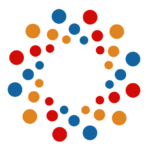ESMED Congress 2021
Ut enim ad minim veniam, quis nostrud exercitation ullamco

- Overview
- Agenda
- Location
- Speakers
- Transport & Hotels
- Register
[show_overview_content]
[show_agenda_content]
Lorem ipsum dolor sit amet, consectetur adipiscing elit. Ut elit tellus, luctus nec ullamcorper mattis, pulvinar dapibus leo.
[show_speaker_content]
Lorem ipsum dolor sit amet, consectetur adipiscing elit. Ut elit tellus, luctus nec ullamcorper mattis, pulvinar dapibus leo.
Lorem ipsum dolor sit amet, consectetur adipiscing elit. Ut elit tellus, luctus nec ullamcorper mattis, pulvinar dapibus leo.
Step 1
[acf field=”registration_embedded_code”]
Step 2
Payment
* Publication of one manuscript in the Medical Research Archives, the official open-access journal of the European Society of Medicine.

